Economy

PUBLISHER PRIZE 2025 FOR GERLACH PRESS
2025-10
Gerlach Press is delighted and proud to have been awarded the German Publisher Prize 2025, which is presented by the Federal Government's Secretary for Culture. The main criteria for the jury's decision were an innovative publishing programme, the quality of publishing work, and a particularly appealing design of the books. We would like to thank all our authors who are the very foundation of our success, and hope that this recognition will further strengthen the press. Ad multos annos!...
more »
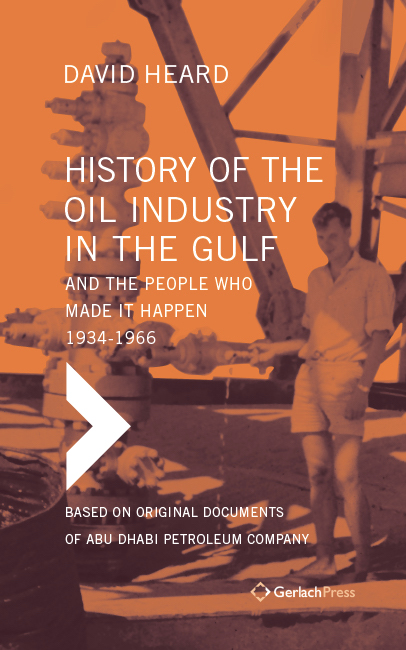
David Heard
History of the Oil Industry in the Gulf and the People Who Made it Happen, 1934-1966
Based on Original Documents of Abu Dhabi Petroleum Company. With a Summarized Index for all Volumes (Set of 5 Parts in 6 Volumes)
2025-01
These volumes are a testament of the challenges contended by extraordinary men who initiated the search for oil in the United Arab Emirates in the years between the two World Wars. This set of a total of five books in six volumes features never-before-published copies of letters, notes and reports complementing the research, which stems from the archives of the Abu Dhabi Petroleum Company (ADPC) and other literature recorded by British Government officials. With rare photographs and maps alongside the author's ...
more »
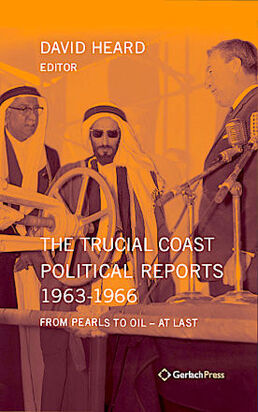
David Heard
The Trucial Coast Political Reports 1963-1966. From Pearls to Oil - at Last.
With a Summarized Index for all Volumes (History of the Oil Industry in the Gulf, Part 5)
2025-01
The Trucial Coast Political Reports are a unique record of events, commented on by a small group of British men living in Sharjah and Dubai. This was in the years leading up to the commencement of oil exports from the desert of Abu Dhabi. These men regularly met to discuss and negotiate with the Rulers of the Trucial States - sometimes in a state of mutual incomprehension - the conditions under which the Company (Petroleum Development/ Trucial Coast or PD/TC) would operate in their various territories. Boundaries and fron...
more »
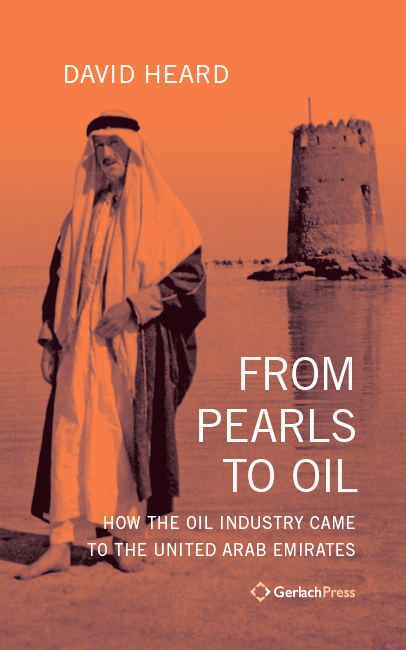
David Heard
From Pearls to Oil. How the Oil Industry Came to the United Arab Emirates
(History of the Oil Industry in the Gulf, Part 1)
2025-01
From Pearls to Oil is a testament of the challenges contended by extraordinary men who initiated the search for oil in the United Arab Emirates in the years between the two World Wars. This book features never-before-published copies of letters, notes and reports complementing the research, which stems from the archives of the Abu Dhabi Petroleum Company (ADPC) and other literature recorded by British Government officials. With rare photographs and maps alongside the author's in-depth narrative, this book is a...
more »
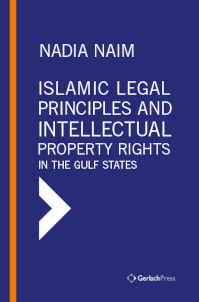
Nadia Naim
Islamic Legal Principles and Intellectual Property Rights in the Gulf States
2023
The book focuses on the relationship between Islamic law and intellectual property law and proposes groundbreaking alternatives to better support the growth of intellectual property in line with the Islamic moral economy. The author provides an overview of the development of intellectual property under Shariah principles in the Gulf States. She focuses on how the US and the EU have shaped the intellectual property regimes in the Gulf States, the WTO and WIPO in the pre-TRIPS era, and compliance with the minimum standards o...
more »
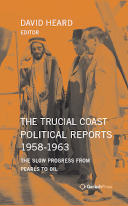
David Heard
The Trucial Coast Political Reports 1958-1963. The Slow Progress from Pearls to Oil
(History of the Oil Industry in the Gulf, Part 4)
2021
The Trucial Coast Political Reports are a unique record of events, commented on by a small group of British men living in Sharjah and Dubai. This was in the years leading up to the commencement of oil exports from the desert of Abu Dhabi. These men regularly met to discuss and negotiate with the Rulers of the Trucial States - sometimes in a state of mutual incomprehension - the conditions under which the Company (Petroleum Development/ Trucial Coast or PD/TC) would operate in their various territories. Boundaries and fronti...
more »
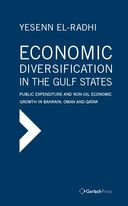
Yesenn El-Radhi
Economic Diversification in the Gulf States:
Public Expenditure and Non-Oil Economic Growth in Bahrain, Oman and Qatar
2018
A long-standing economic policy goal of the oil-dependent states of the Gulf Cooperation Council is to increase economic diversification. Over the last decades, GCC governments fostered the development of non-oil economies through large-scale public investments in the stocks of human and physical capital. This book takes a new look at economic diversification efforts by examining the impact of different public expenditure categories (capital, education, health) on non-oil GDP and labour productivity developments in the three...
more »
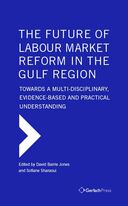
David B. Jones, Sofiane Sahraoui
The Future of Labour Market Reform in the Gulf Region:
Towards a Multi-Disciplinary, Evidence-Based and Practical Understanding
2017
As governments across the GCC strive to implement labour policies which accelerate the transition to "post oil" knowledge-based economies, this volume provides insights into the size of this challenge, along with analysis of progress to date. With a comprehensive coverage of the region (each GCC member is included in some respect), this new work provides unique insights into how the domestic policy agenda is shifting the region's moribund labour markets inexorably towards greater productivity, positivity, sust...
more »
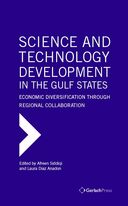
Afreen Siddiqi, Laura Diaz Anadon
Science and Technology Development in the Gulf States:
Economic Diversification through Regional Collaboration
2017
The Arab states of the Gulf, currently heavily reliant on oil and gas exports, have stated their intention to promote economic diversification and have embarked on reforming existing institutions for higher education, scientific research, and technology innovation. The region has witnessed huge population growth in recent decades, and in some cases (e.g. Saudi Arabia) almost half the population is under the age of twenty-five and in need of access to quality education and meaningful employment opportunities. This book provid...
more »
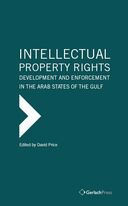
David Price, Alhanoof AlDebasi
Intellectual Property Rights: Development and Enforcement in the Arab States of the Gulf
2017
This volume includes a range of topics addressing aspects of the current status of intellectual property (IP) protection regimes in the Gulf Cooperation Council and its individual member states, and aspiring GCC members Jordan and Yemen. It examines the opportunities and challenges facing the GCC in becoming a real union with common, or at least harmonized, IP laws and regulations, while still allowing flexibility for domestic imperatives and interests. IP is a crucial part of commercial and trade activity which the GCC need...
more »
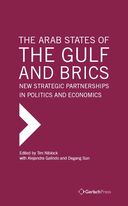
Tim Niblock, Degang Sun, Alejandra Galindo
The Arab States of the Gulf and BRICS:
New Strategic Partnerships in Politics and Economics
2016
How the Gulf Cooperation Council (GCC) relates to BRICS (Brazil, Russia, India, China, and South Africa) is, in the light of the growing strength and importance of this organisation and the countries which comprise it, of critical importance. The issue is not simply how the GCC countries handle their relations with the individual BRICS countries, but more importantly how they relate to an alternative structure of coordination and perhaps power in the global order. Their established links and alliances may no longer be enough...
more »
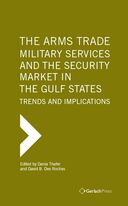
David B. Des Roches, Dania Thafer
The Arms Trade, Military Services and the Security Market in the Gulf States: Trends and Implications
2016
The Gulf is in the first rank of potential global flashpoints. It is the largest market for weapons imports in the world, and is considered to be a vital interest of all the great powers. Iran is viewed as an expansionist threat by the Arab states of the Gulf, who have built considerable militaries in a historically short timeframe. Security in the Gulf, however, is a complicated matter. The Arab states of the Gulf have pursued different defense policies as well as different ways of building up their forces. In some instance...
more »
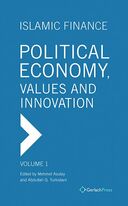
Mehmet Asutay, Abdullah Q. Turkistani
Islamic Finance: Political Economy, Values and Innovation
Volume 1
2016
Islamic finance has had a transformational impact on markets well beyond the Muslim world. This development has been the outcome of various stakeholders and agencies interacting to develop a political economy based on Islamic values to generate religiously and culturally authentic financial institutions and instruments. The studies presented in this volume discuss these interactions through specific examples from the GCC countries, supported by comparative perspctives, in order to articulate the development and consequences...
more »
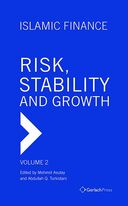
Mehmet Asutay, Abdullah Q. Turkistani
Islamic Finance: Risk, Stability and Growth
Volume 2
2016
In response to the recent global financial crisis, Islamic finance, as a religiously authentic proposition, has shown resilience throuh its inherited principles such as risk sharing and the avoidance of speculation. Such approaches have provided stability, which in turn has brought unprecedented growth to the sector. The studies in this volume focus on examples in the GCC countries to provide empirical analysis of the risk aspects of Islamic finance, to test its stability, identify its growth trajectories, and measure its im...
more »
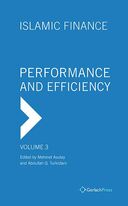
Mehmet Asutay, Abdullah Q. Turkistani
Islamic Finance: Performance and Efficiency
Volume 3
2016
The growth, stability and resilience of Islamic finance is now a well established fact. However, in order to achieve sustainable growth the Islamic finance industry has to be able to maintain its competitive edge by generating higher efficiency and performance. The studies in this volume aim at providing empirical and comparative perspectives on the performance and efficiency of the Islamic finance industry through a number of econometric models, with a specific focus on the GCC countries supported by comparative cases....
more »
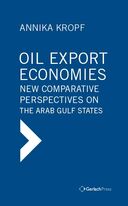
Annika Kropf
Oil Export Economies: New Comparative Perspectives on the Arab Gulf States.
with a foreword by Giacomo Luciani
2016
Despite their commonalities, the Arab Gulf States have started economic diversification from different settings and against different political backgrounds. This book applies a multi-method approach including Qualitative Comparative Analysis (QCA) to highlight their heterogeneous economic development trajectories and to compare them to other major oil exporters. From a political economy perspective, it demonstrates how neoclassical economic theory fails to grasp the underlying mechanisms of their development. The research de...
more »
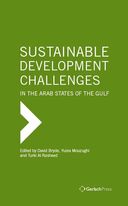
David Bryde, Yusra Mouzughi, Turki Al Rasheed
Sustainable Development Challenges in the Arab States of the Gulf
2015
This volume surveys the increasing challenges facing the Arab Gulf states in terms of sustainable consumption and production. Topics include: - Environmental sustainability: waste, recycling, water, energy, renewables, and pollution - Economic sustainability: employment, education, training and business engagement - Social sustainability: equality and diversity, pollution, congestion, community participation Includes contributions from specialists from the UAE, Bahrain, Lebanon, Egypt, Oman, Saudi Arabia, Morocco and Qatar a...
more »
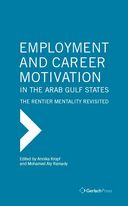
Annika Kropf, Mohamed Ramady (eds)
Employment and Career Motivation in the Arab Gulf States:
The Rentier Mentality Revisited
2015
The notion of “rentier mentality” has haunted the literature on the Gulf States for almost 40 years now. However, few studies have actually provided insight into how the nationals themselves perceive their career motivators, employability and productivity. The eleven studies of this book present both empirical findings and case studies that reveal what nationals expect from their workplace and what hinders them from a personal, meaningful contribution. While it seems that an initially high work motivation is often annihilate...
more »
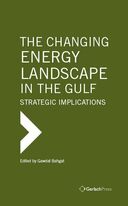
Gawdat Bahgat
The Changing Energy Landscape in the Gulf:
Strategic Implications
2015
Extreme fluctuations in oil prices (such as the dramatic fall from mid-2014 into 2015) raise important strategic questions for both importers and exporters. In this volume, specialists from the US, the Middle East, Europe and Asia examine the rapidly evolving dynamic in the energy landscape, including renewable and nuclear power, challenges to producers including the shale revolution, and legal issues. Each chapter provides in-depth analysis and clear policy recommendations....
more »
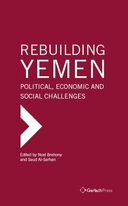
Noel Brehony, Saud Al-Sarhan
Rebuilding Yemen:
Political, Economic and Social Challenges
2015
As Yemenis start planning the reconstruction and rebuilding of their country after recent turmoil they face huge challenges in every major sphere. This book discusses the political and economic background and analyses the most important issues: - the option of improved governance through a federal government - addressing the powerful and patronage networks of the previous regime - investing in Yemen’s human and natural resources to compensate for falling revenues from oil and gas - maintaining rural life through reduced depe...
more »
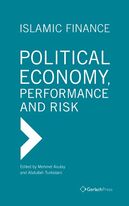
Mehmet Asutay, Abdullah Q. Turkistani
Islamic Finance - Political Economy, Performance and Risk.
Set, 3 volumes
2015
This collection of new research brings together state of the art thinking by 45 experts from academia and business on all key aspects of Islamic Finance. Individual volumes deal with the key issues of: Political Economy, Values and Innovation; Risk, Stabilty and Growth; Performance and Efficiency. - Volume 1 Political Economy, Values, and Innovation - Volume 2 Risk, Stability and Growth - Volume 3 Performance and Efficiency...
more »
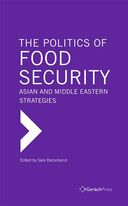
Sara Bazoobandi
The Politics of Food Security: Asian and Middle Eastern Strategies
2014
The international food system is increasingly at risk. Increasing demand, limited and diminishing resources and rising volatility are putting new pressures on the agriculture sector globally. One of the growing critical threats to global stability and security is the inadequacy of food resources. This threat,exacerba-ted by global population growth, is illustrated by shifts in consumption patterns toward protein-rich diets and the growth of multinational food retail, which bring about a greater reliance on food imports. This...
more »
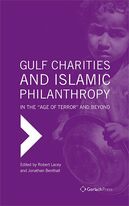
Robert Lacey, Jonathan Benthall
Gulf Charities and Islamic Philanthropy in the "Age of Terror" and Beyond
2014
Gulf Charities and Islamic Philanthropy in the "Age of Terror" and Beyond is the first book to be published on the charities of Saudi Arabia and the Arabian Gulf, covering their work both domestic and international. From a diversity of viewpoints, the book addresses: The historical roots of Islamic philanthropy in religious traditions and geopolitical movements The interactions of the Gulf charities with "Western" relief and development institutions - now under pressure owing to budgetary constraints Num...
more »
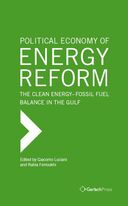
Giacomo Luciani, Rabia Ferroukhi
Political Economy of Energy Reform:
The Clean Energy-Fossil Fuel Balance in the Gulf States
2014
Climate change requires coordinated global responses. All nations, including major Gulf Arab oil producers, should implement policies to contain greenhouse gas (GHG) emissions. Yet all realistic scenarios point to the continuing global need for fossil fuels. The countries of the Gulf Cooperation Council (GCC) thus face a dilemma between continuing development and use of their fossil fuel endowments and increasing reliance on low carbon sources, such as nuclear, solar or wind. This book explores various facets of the dilemma....
more »
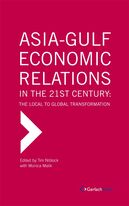
Tim Niblock with Monica Malik
Asia-Gulf Economic Relations in the 21st Century. The Local to Global Transformation
2013
Asia constitutes the hub of the transformation of global economic power today. The Gulf, itself part of Asia, is of increasing importance in this transformation. This book documents the growing interactions between the economies of the Gulf states and those of the rest of Asia. These relationships are critical to how the world economy develops over the next decade, and how economic (and perhaps strategic) power is distributed. This volume assembles cutting-edge thinking by 16 specialists on a wide variety of topics covering ...
more »
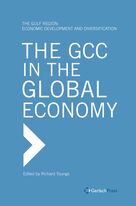
Richard Youngs
The GCC in the Global Economy
2013
Changing geopolitical realities have seen the Gulf region turning to Asia and Africa to build new economic links, while strengthening old ones. This proactive internationalism is visible not just in economics and energy, but also in politics and security where a host of new agreements has been developed. This work provides an overview of the ways in which the GCC states now need to move ahead with reforms that will reflect issues such as raised expectations from a period of high revenues and the region's demographics. T...
more »
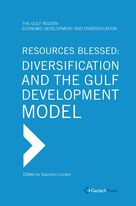
Giacomo Luciani
Resources Blessed: Diversification and the Gulf Development Model
2013
The Gulf countries have adopted a unique combination of policies to encourage diversification with largely positive results, while there are significant distinctions between the individual cases. This work evaluates various examples to show the extent to which the Gulf economies have diversifed to date, and how results can be measured, taking into consideration factors such as composition of GDP or exports; government services; and the categorization of industrial activities downstream of resources extraction (oil refining, ...
more »
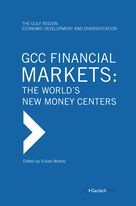
Eckart Woertz
GCC Financial Markets: The World's New Money Centers
2013
Bond markets in the GCC countries are underdeveloped, and the capital mix is heavily skewed towards banks, while ambitious development plans in fields like petrochemicals and infrastructure, as well as a rapidly growing population, create an increased need for finance. This study outlines the structure of various segments of GCC financial markets and points to regulatory challenges and future developments, ranging from capital market structures to the planned GCC Monetary Union, Islamic banking, and sovereign wealth funds. T...
more »
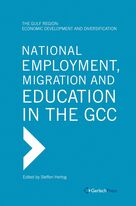
Steffen Hertog
National Employment, Migration and Education in the GCC
2013
This volume provides a cross-cutting analysis of the policy challenges related to GCC labor markets. It analyzes the different dimensions of segmentation of these markets, factors of change influencing labor supply such as trends in education and demography, as well as the impact of potential future reforms in areas such as immigration policy, labor sponsorship, taxation and minimum wages. The work therefore provides an overview of what arguably will be the core socio-economic challenge for the GCC in the coming years....
more »
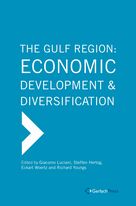
Giacomo Luciani, Steffen Hertog, Eckart Woertz, Richard Youngs
The Gulf Region: Economic Development & Diversification.
Set, Volumes 1-4
2012
The four volumes in this major research collection address the key economic issues which affect the future development and diversification of the member states of the Gulf Cooperation Council (GCC), namely Saudi Arabia, Kuwait, Bahrain, Qatar, UAE and Oman. Specifically, this recent research covers Economic Diversification, Development of Global Partnerships, Labor Markets and Migration, and Financial Markets as Global Players The work brings together state-of-the-art analysis by some 40 international scholars who participat...
more »



